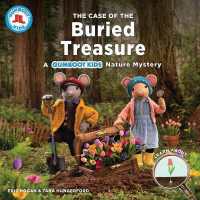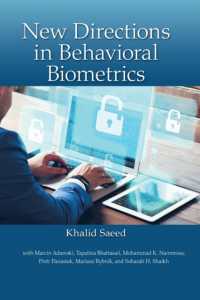Full Description
Explore the multiple ways adults learn through their bodies. Embodied or somatic learning is a way of learning that relies on the body s knowledge. Our most basic form of learning in childhood is preverbal; however, traditional schooling forces us to check our bodies at the door, requiring us to sit at a desk and raise our hands, focusing primarily on cognition to the exclusion of other ways of knowing. By the time we reach adulthood, being in our bodies is a foreign concept and a source of discomfort for many of us. This volume challenges the dominant paradigm of how knowledge is constructed and shared. Embodied learning is examined through a variety of practice contexts, including higher education, community education, health care, and the workplace, and through multiple methods, including dance, theater, and outdoor experiential education. This is 134th volume of the Jossey-Bass quarterly report series New Directions for Adult and Continuing Education.
Noted for its depth of coverage, it explores issues of common interest to instructors, administrators, counselors, and policymakers in a broad range of adult and continuing education settings, such as colleges and universities, extension programs, businesses, libraries, and museums.
Contents
EDITOR'S NOTES 1 Randee Lipson Lawrence 1. Intuitive Knowing and Embodied Consciousness 5 Randee Lipson Lawrence This article describes the relationship between intuition and embodied knowing, including how embodied knowing comes into our consciousness. It sets the stage for the variety of practice contexts and strategies that are discussed in this volume. 2. Embodied Learning and Patient Education: From Nurses' Self-Awareness to Patient Self-Caring 15 Ann L. Swartz This article presents embodied learning from a neurobiologic perspective as a naturally occurring process in patient education. It describes how nursing students learned to trust their own bodies, which led to self-empowerment and extended to patient care. 3. Embodied Learning at Work: Making the Mind-set Shift from Workplace to Playspace 25 Pamela Meyer Creative play and improvisation can transform organizations into dynamic spaces for learning, promoting collaboration, and creating problem solving. 4. Embodying Women's Stories for Community Awareness and Social Action 33 Yolanda Nieves This article describes a case study involving collecting stories of Puerto Rican women and embodying them through community performance. In performing the stories, repressed and subjugated knowledge was unleashed. 5. Outdoor Experiential Education: Learning Through the Body 43 Eric Howden In adventure education, one experiences a series of physical challenges designed to improve self-confidence and create cohesive teams. As thinking one's way through the obstacles often promotes anxiety, one learns to rely on one s body. 6. Dance as a Way of Knowing 53 Celeste Snowber Dance is a method of inquiry that invites us to imagine new worlds. This article takes an in-depth look at dance and body movement and the implications for teaching and learning in a variety of disciplines. 7. Embodied Knowledge and Decolonization: Walking with Theater's Powerful and Risky Pedagogy 61 Shauna Butterwick, Jan Selman Popular theater is an educational tool that empowers individuals to see themselves as creators of their own stories. Mind, body, and emotions come together as anti-oppressive forces. 8. Coming Full Circle: Reclaiming the Body 71 Randee Lipson Lawrence This concluding article integrates and synthesizes themes from the previous articles and highlights the lessons learned. Index 79







